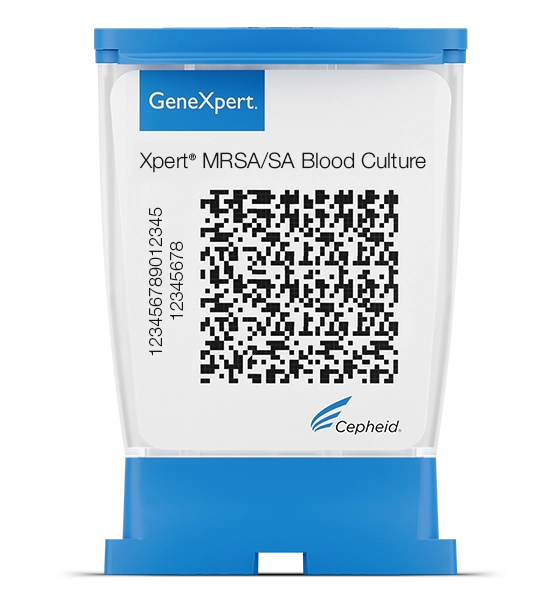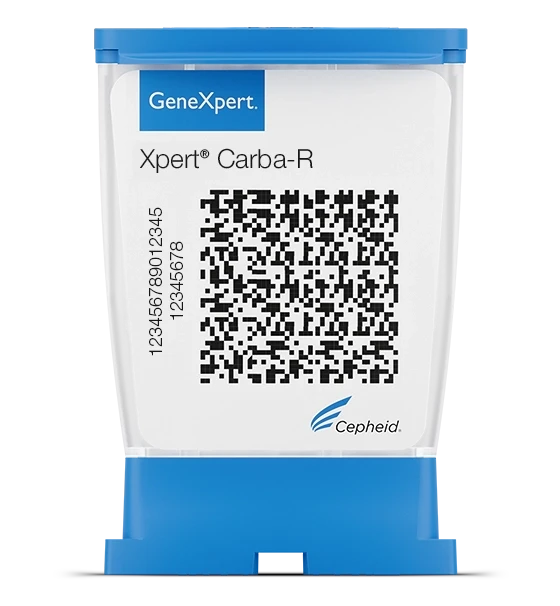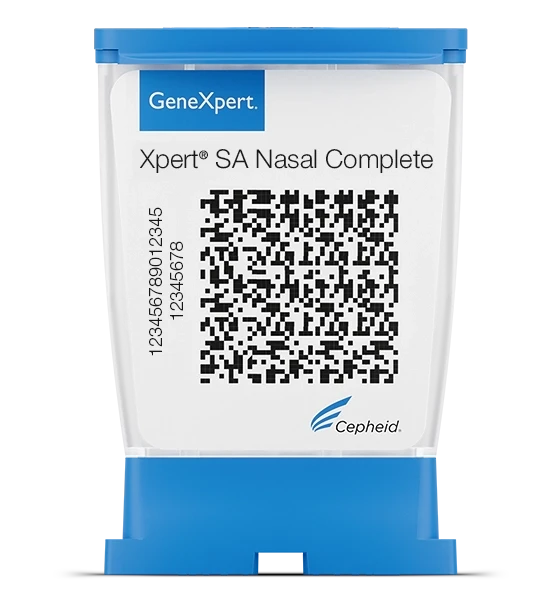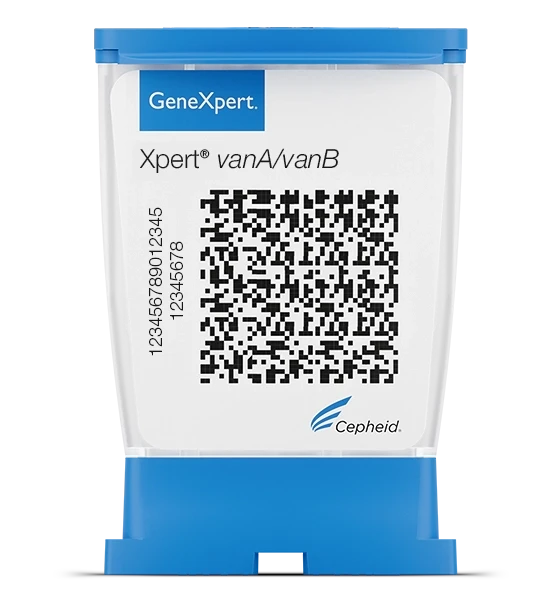

La necesidad
- Las infecciones del torrente sanguíneo provocan aproximadamente 250 000 muertes al año en Norteamérica y Europa combinadas1
- S. aureus y SARM siguen siendo las principales causas de infecciones del torrente sanguíneo y están asociadas a un aumento de la duración de la estancia hospitalaria y de los costes del hospital2
- Los métodos actuales de ensayos de laboratorio en cultivos para frascos de hemocultivos grampositivos requieren de 24 a 72 horas más para la determinación de S. aureus o SARM
- El tratamiento antimicrobiano precoz puede reducir la mortalidad por infección del torrente sanguíneo2
Diekema DJ, Hsueh PR, Mendes RE, Pfaller MA,
2 Parcel B, et al. Las pruebas moleculares rápidas de bacteriemia por Staphylococcus aureus mejoran el tratamiento clínico. J Med Microbiol. 2020 Mar;.
La solución
El ensayo Xpert MRSA/SA Blood Culture da lugar a:
- Laboratorios eficientes con flujos de trabajo a demanda que requieren un tiempo de manipulación mínimo
- Tratamiento optimizado que permite obtener mejores resultados del paciente y reducir la prescripción empírica
El impacto
- Reducción del plazo medio de 24 horas para la notificación de resultados, lo que permite una revisión temprana del tratamiento del paciente2
- Tratamiento antibiótico optimizado 1.7 días antes3
- Reducción de la media de duración de estancia hospitalaria a 6.2 días3
3 Goff D, et al. An antimicrobial stewardship program’s impact with rapid polymerase chain reaction methicillin-resistant Staphylococcus aureus/S. aureu sblood culture test in
patients with S. aureus bacteremia. Clin Infect Dis. 2010
Recursos para productos
Información sobre productos
Prospectos y MSDS
Preguntas frecuentes
The Xpert® MRSA/SA Blood Culture test, performed on the GeneXpert® systems, is a qualitative in vitro diagnostic test intended for the detection of Staphylococcus aureus (SA) and methicillin-resistant Staphylococcus aureus (MRSA) DNA directly from positive blood cultures.1
The test utilizes automated real-time polymerase chain reaction (PCR) for the amplification of MRSA/SA specific DNA targets and fluorogenic target-specific hybridization probes for the real-time detection of the amplified DNA.1
The Xpert MRSA/SA Blood Culture test is indicated for use in conjunction with other laboratory tests, such as culture, and clinical data available to the clinician as an aid in the detection of MRSA/SA from positive blood cultures. Subculturing of positive blood cultures is necessary to recover organisms for susceptibility testing or for epidemiological typing. The Cepheid Xpert MRSA/SA Blood Culture test is not intended to monitor treatment for MRSA/SA infections.1
Staphylococcus aureus (SA) is a human pathogen, which is the causative agent of a range of diseases including bacteremia, endocarditis, osteomyelitis, toxic shock syndrome, food poisoning, carbuncles, and boils.1
In the early 1950s, acquisition and spread of beta-lactamase-producing plasmids thwarted the effectiveness of penicillin for treating SA infections. In 1959, methicillin, a semi-synthetic penicillin, was introduced and, soon after, methicillin-resistant SA (MRSA) strains were identified.1
MRSA colonization increases the risk of infection, with infecting strains match colonizing strains in as many as 50–80% of cases. MRSA nasal colonization rates range from 0.9% to 1.5% in the United States2
Bibliografía:
1. Xpert® MRSA/SA Blood Culture Package Insert. Consultado el 9/25/2024. https://www.cepheid.com/es-ESntent/dam/www-cepheid-com/documents/package-insert-files/301-1061-mrsa-sa-bc/IFU%20MRSA.SA%20BC%20ENGLISH%20301-1061%20Rev%20F.pdf
2. Turner, N.A., Sharma-Kuinkel, B.K., Maskarinec, S.A. et al. Methicillin-resistant Staphylococcus aureus: an overview of basic and clinical research. Nat Rev Microbiol 17, 203–218 (2019). https://doi.org/10:1038/s41579-018-0147-4










